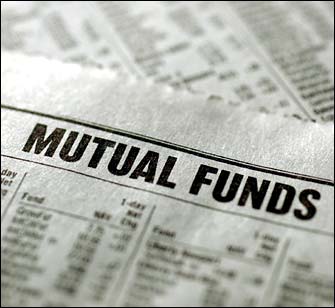There's an economic term called Opportunity Cost which is self explanatory in itself. But just for a quick introduction let's say you need to choose between buying 2 Mc Aloo Tikkis for say 50 vs 1 Mc Veggie for the same amount. The dilemma here is that you need to choose between buying two inferior burgers for the same amount versus buying one superior burger for the same amount. This in the gist of it and is the narrow definition of opportunity cost which you and I apply in our everyday lives without even realizing it.
So the question is that where does the paradox lie? Well for starters let's say that you want to buy an Adidas sweatshirt and it is for around 1000 rupees. And there's this thing in the back of your head which says 'yeah sure I can buy that for 1000 rupees but in a month's time most likely it's going to be going for much less'. And you let go of that shirt for a month. Now post that month you realize the price has still not changed and decide to wait longer and then you forget about it as a whole.
Now about three months later you walk in to the same store and realize that you cannot find that shirt anywhere . Upon enquiring the salesperson tells you that you missed the 50% discount sale and stocks been cleared. However, you can have a newer version of the shirt which costs 1200. Frustrated you go in for the 1200 shirt.
Now applying the same principal to a car. Buying a car 10 years from now will be relatively more expensive as compared to now. When we compare inflation relatively goods tend to become expensive in the long run even if there is a brief period of controlled inflation or even deflation. As a result 10 years from now the same 100 rupee note will buy lesser quantity that it can buy today. There may be an year or even two when that 100 rupee note is able to buy more of the same quantity but when we look at the entire picture purchasing power is going to decrease.
Now the argument most people will give is that income will increase at a substantial rate. The problem here is that with economies delving into crisis from which it's going to take decades to come out of. And corporations filing for bankruptcy day in and day out. An ever increasing threat of defaults in the Eurozone, an unstable oil rate and widely fluctuating gold prices. Coupled with the fact that America and other developed and developing countries refuse to tax their Ultra rich and in spite of running deficits that amount to trillions of dollars still wish to increase it.
The future but seems bleak. So do me a favour today. If you see that Adidas shirt going for a 1000 walk in to the store and bargain for a fairer price. And buy it. For 10 years from now who knows what that Adidas shirt is going to cost?
-Doodle
So the question is that where does the paradox lie? Well for starters let's say that you want to buy an Adidas sweatshirt and it is for around 1000 rupees. And there's this thing in the back of your head which says 'yeah sure I can buy that for 1000 rupees but in a month's time most likely it's going to be going for much less'. And you let go of that shirt for a month. Now post that month you realize the price has still not changed and decide to wait longer and then you forget about it as a whole.
Now about three months later you walk in to the same store and realize that you cannot find that shirt anywhere . Upon enquiring the salesperson tells you that you missed the 50% discount sale and stocks been cleared. However, you can have a newer version of the shirt which costs 1200. Frustrated you go in for the 1200 shirt.
The point is: 'That which appears to be expensive is not always expensive.'
Now applying the same principal to a car. Buying a car 10 years from now will be relatively more expensive as compared to now. When we compare inflation relatively goods tend to become expensive in the long run even if there is a brief period of controlled inflation or even deflation. As a result 10 years from now the same 100 rupee note will buy lesser quantity that it can buy today. There may be an year or even two when that 100 rupee note is able to buy more of the same quantity but when we look at the entire picture purchasing power is going to decrease.
Now the argument most people will give is that income will increase at a substantial rate. The problem here is that with economies delving into crisis from which it's going to take decades to come out of. And corporations filing for bankruptcy day in and day out. An ever increasing threat of defaults in the Eurozone, an unstable oil rate and widely fluctuating gold prices. Coupled with the fact that America and other developed and developing countries refuse to tax their Ultra rich and in spite of running deficits that amount to trillions of dollars still wish to increase it.
The future but seems bleak. So do me a favour today. If you see that Adidas shirt going for a 1000 walk in to the store and bargain for a fairer price. And buy it. For 10 years from now who knows what that Adidas shirt is going to cost?
-Doodle




